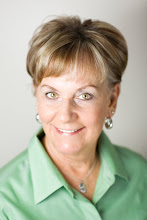FAQ'S FOR PARENTS 1
On Setting Limits
"My child doesn’t listen to what I say and I’m exhausted from all the daily power struggles to get her to comply with my requests. What should I do?"
Some parents seem to have a hard time setting limits for their children and following through with actions for non-compliance. Children have a way of making parents feel that they are the meanest folks in town. In many instances the child ends up calling the shots while the parents worry about being too hard on her. Believe it or not, although the child may balk at parental rules, she indeed expects them, looks for them and needs them. Decide on what your behavioural expectations are; explain them clearly to your child outlining the consequences for non-compliance. The secret then is consistency and follow-through. Start at an early age to establish your message.
"I’m afraid if I set rules, my child won’t like me and I want to be his friend. Should I worry about this?"
Sometimes parents focus too much on trying to be their child’s friend. We must remember that children are just children, not adults, nor our peers. As children, they require clear and consistent behavioural guidelines. Even though they may protest, they clearly want and need direction and some consistent routines. This gives them a sense of security. All children test limits. That’s just what they do. It’s not personal. Children will accept your rules and behavioural limitations if you discipline with lots of hugs and humour. You are the parent first, and have a responsibility to set limits. In the long run, they will love and respect you more when they see you care enough about them to set limits for their own good. You just won’t see it at the moment!
On Education and Learning
"My child has a learning disability. What does that mean?"
As many as 20% of a school population may have a learning disability of one type or another. Even gifted children may have factors that interfere with their learning. Children with learning disabilities have a breakdown somewhere in their processing, storing or reporting of information. Each child’s difficulties are unique. After diagnosis, you need to make sure that the school or private psychologist explains very clearly the nature and extent of the disability and how it might impact on classroom learning. As well, you need to understand how the disability might affect daily living at home. Find out what strategies you can use at home to support your child’s learning style. The child also needs to understand his disability and learn to become his own advocate. It’s the strategies that become the key to success for the child.
"My child has no self confidence in his academic ability and is starting to give up. What do I do?"
A child’s self esteem influences his motivation and achievement. Not all children learn in the same way or at the same rate. We must always look for a child’s strengths and special gifts. Children need to know that we all have different abilities and talents. Sometimes those talents lie outside the classroom. Parents need to value the non-academic strengths just as highly as they value the 3R’s. Find your child’s strengths and keep focusing on them. Point out that not all children have his/her special gifts. We must never contribute to a child’s negative self image or he will carry that view of himself into adulthood.
"My child says he has homework, but never seems to know what to do. How can I help?"
Parents need to become familiar with the school’s homework policy. Find out how your child’s teacher assigns the homework and how the students are expected to record it. Most students need to see the homework written on a board or have a written copy with specific instructions for a particular long term project or assignment. Call the school if you are not sure of what is expected. Let your child know that you will be asking every day to see where the homework is recorded. Know the time lines for project completion. Children have a way of leaving everything to the last minute and then the whole house goes into overdrive.
Permission for reprint of this article is given with the inclusion of this statement:
Barb Ashcroft offers Journey to Seminars and private consultation for those who want to think more positively, discover their true passions, and feel fully alive. She may also be booked for professional speaking engagements. Contact Barb 905 814-6434 barb@barbashcroft.com
Labels: FAQ'S for parents


0 Comments:
Post a Comment
Subscribe to Post Comments [Atom]
<< Home